A Vision for Water: Event Recap and Reflection Update
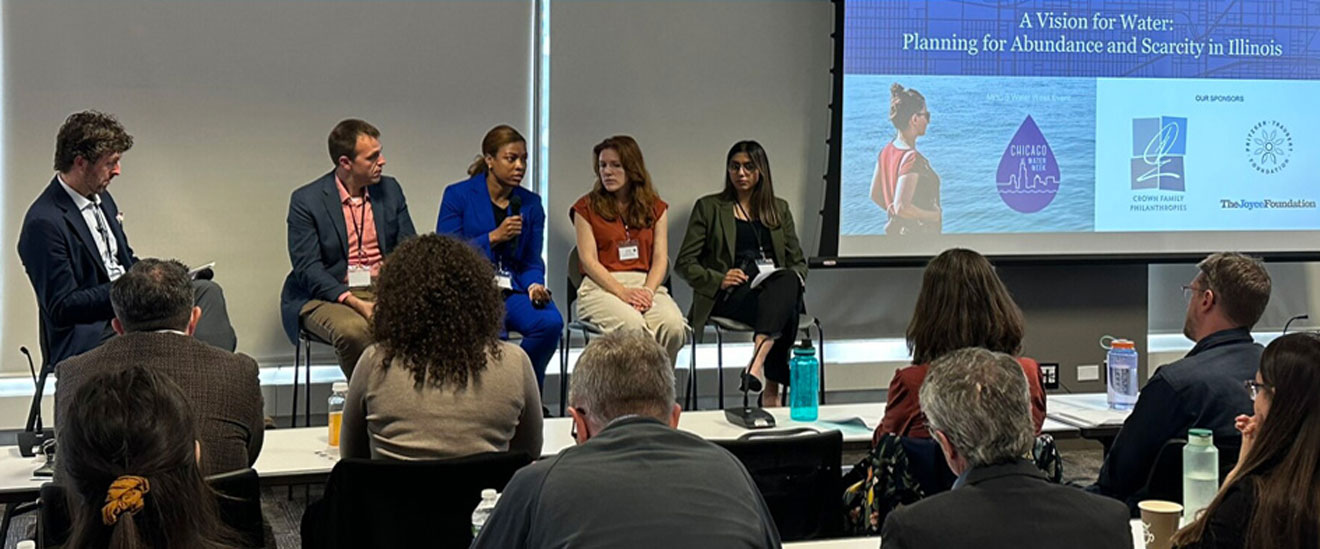
Continuing the conversation
A reflection on the collective voice of water sector leaders
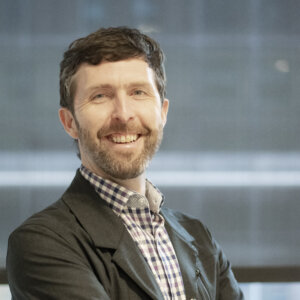 By MPC Director Ryan Wilson
By MPC Director Ryan Wilson
October 16, 2024
Five months ago, MPC leveraged its convening power to bring together a multi-generational cohort of water sector leaders under the banner of “A Vision for Water: Planning for Abundance and Scarcity in Illinois.” Our discussions reflected on the collective threads woven since our last Vision for Water gathering in 2020—another federal election year, and a time when the world stood at the brink of a fundamental shift due to the global pandemic. This past May, the tone had shifted—worn yet optimistic—fueled by the potential of collective action within the room.
We posed a critical scenario to participants: Regardless of the outcome of the upcoming election, it is unlikely that we will see another investment in water infrastructure—whether lead service line replacement, Great Lakes restoration, coastal resilience, water technology, or green stormwater infrastructure—on the scale set to sunset in 2026.
As we approach November 2024, I want to share some insights from the more than 70 participants who represented all facets of the water sector. They spoke of the need for resilience and humility in navigating multiple crises, the value of collaboration, and the urgency of maximizing participation in rebuilding our built environment. They acknowledged the ongoing challenges of bridging silos, working in communities hollowed out by segregation and disinvestment, and accelerating toward holistic solutions. Yet, they also recognized the hard-earned progress: efforts to strengthen the water workforce, promote more equitable program delivery through government and partnerships, and elevate public awareness of the vital asset that fresh, clean drinking water represents for our region and state.
We hear you, and we want to hear more. In the coming months, MPC will host three small-format workshops to distill these insights and themes into a set of guiding principles for navigating a future that, if nothing else, will be different. We will soon share details about the series and send invitations for the first of these workshops, which will continue into the new year and lay the groundwork for expanding our community of practice within the water sector.
Event Recap
This event took place on May 6, 2024.
During Current’s Chicago Water Week, MPC convened water sector leaders from across the region for an energizing day titled “A Vision for Water: Planning for Abundance and Scarcity in Illinois.”
We gathered on May 6 at Harold Washington College, on the 11th floor overlooking Chicago’s Loop, for a livestreamed panel discussion followed by an invite-only working session. Over 70 attendees participated, delving into the opportunities to secure a more sustainable and equitable future of water in Illinois.
This was the second iteration of “A Vision for Water”, building on the January 2020 convening co-hosted with Current at the Field Museum, which focused on “the past, present, and future of water in Illinois”. This time, attendees were encouraged to consider ways to build capacity and opportunity for collaboration across the region’s water sector.
The event kicked off with a thoughtful discussion from our panel—a generation of water champions shaping critical water conversations in Chicago, across the Great Lakes, and the nation. Here are some key insights—check out the recording of the panel here for more!
- Trent Ford, Illinois State Climatologist, Illinois State Water Survey, University of Illinois at Urbana-Champaign:
“climate change itself really doesn’t create very many novel problems. What it does is it acts to exacerbate or interweave different problems that we’re already dealing with—perhaps it makes them worse, perhaps it makes them more unpredictable.” - Chakena Perry, Senior Policy Advocate, National Resources Defense Council:
“The same communities disproportionately impacted with lead pipes also have other cumulative impacts that are impacting their neighborhoods—whether it’s air pollution, whether it’s contaminated soil, whether it’s other toxins such as PFAS and other water contaminants that are impacting their quality of life. Basically, if you’re Black, brown, or poor in this country, you—nine times out of ten—live in an area that has one or more of these issues,” she said. “The sense of urgency really needs to be there to make sure that we’re taking care of people, and treating them as human.” - Emily Simonson, Director of Strategic Initiatives, US Water Alliance:
“We are seeing the consequences more and more of underinvestment and undervaluing of people,” she said. “Our leadership in the water sector isn’t nearly as diverse as it ought to be to have the folks who are most impacted making the decisions.” - Kalindi Parikh, Strategy Director at Current:
“think about solving the problems of environmental justice and economic justice in tandem,” she said. “The question is not just what are the technological advancements that we need coming out of labs, but rather how do we create the kinds of companies that are going to benefit communities where we need that investment? How can we train people for the jobs of the next generation—both the jobs that are available now and the ones that will be available in ten years?”
After the panel discussion, attendees participated in four small group working sessions that discussed the challenges and needs for capacity building and collaboration in the water sector. The facilitated conversations were lively, inspiring, and engaging.
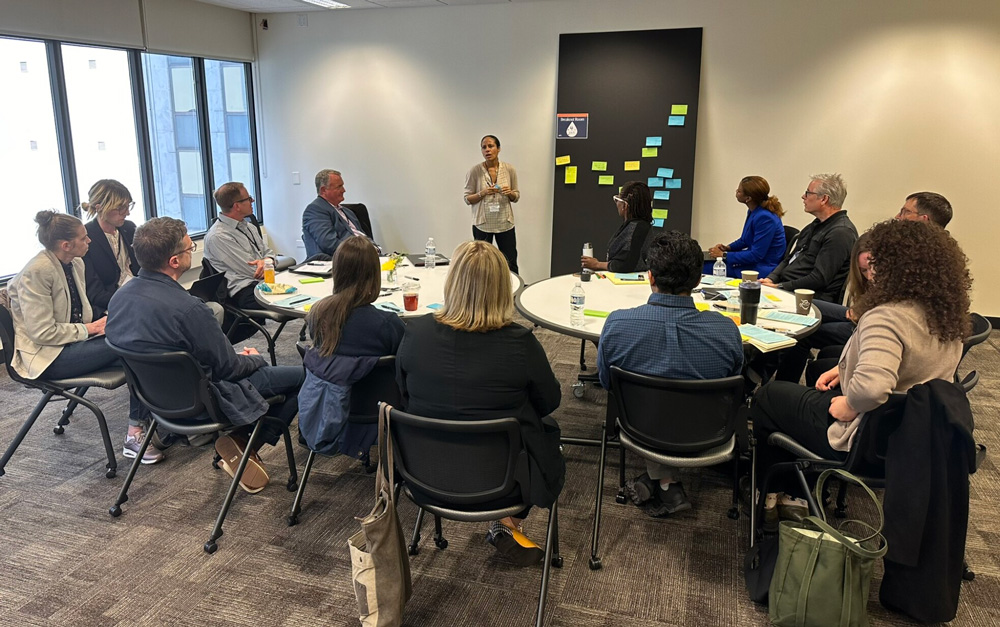
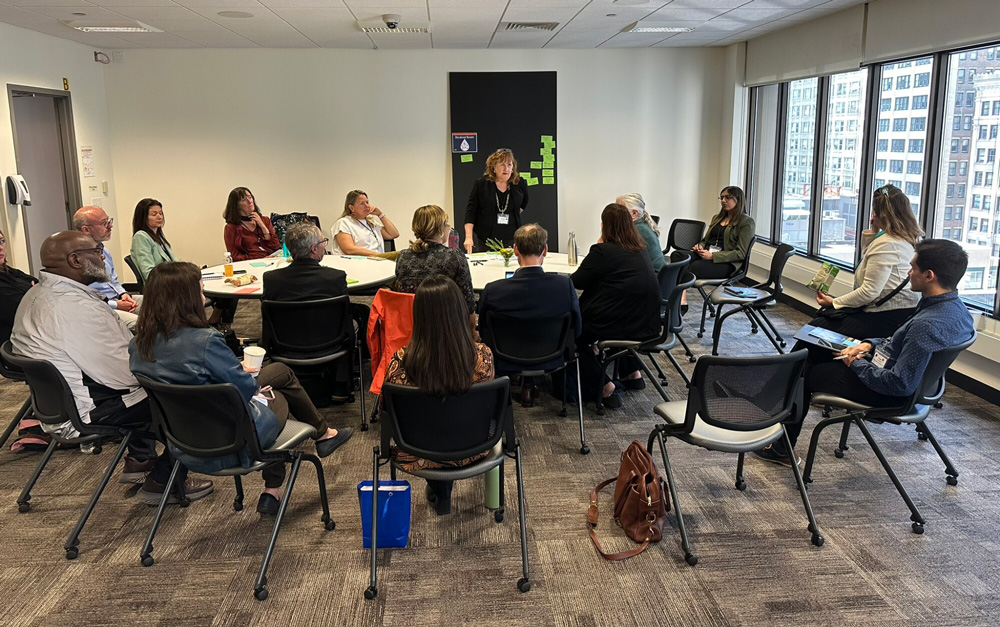
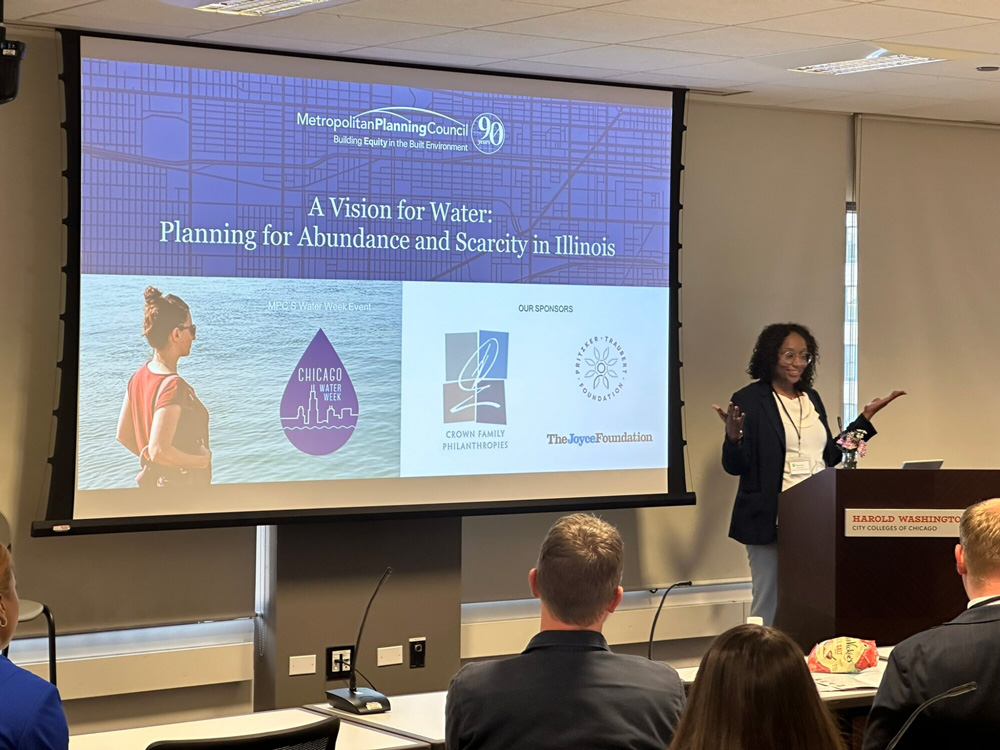
In the coming months, MPC will use the insights gathered at this event to shape and convene further conversations with water leaders. Starting with this convening on a “A Vision for Water”, we hope to better understand the ecosystem of the water sector in our region—our partnerships and our silos—and build a roadmap to sector-wide water planning and collaboration.
This event was made possible by the generous support of event sponsors Crown Family Philanthropies, the Joyce Foundation, and the Pritzker Traubert Foundation, the support of MPC event partner, Vega Impact Group, and the hospitality of the event host Harold Washington College.